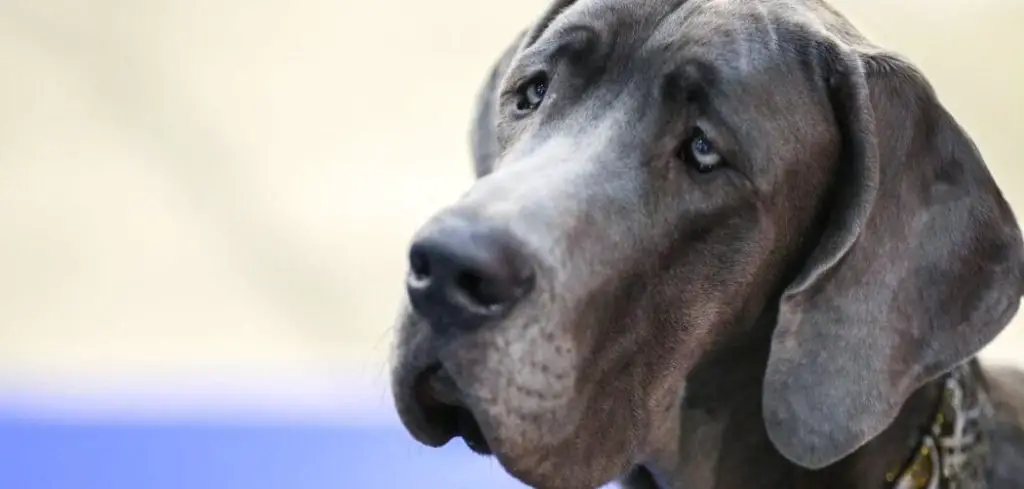A senior dog suddenly licking the floor excessively can be unsettling for any pet owner. While occasional licking can be normal, a sudden change in behavior—especially in an older dog—may point to an underlying health issue or discomfort.
We outline the common causes of sudden excessive floor licking in senior dogs, what you can do at home, and when to seek veterinary help.
Senior Dog Licking Floor Excessively Suddenly — Why It Happens
A senior dog that suddenly starts licking the floor excessively may be experiencing anything from nausea to dental discomfort, stress, or even neurological issues. Older dogs are more prone to gastrointestinal upset, liver or kidney disease, and behavioral changes related to aging.
Sometimes, excessive licking is also a form of displacement behavior when a dog is anxious or in pain.
Recognizing the root cause early is important because it can indicate a treatable condition—or help prevent a more serious one from progressing.

Sudden Excessive Floor Licking in Dogs: Common Causes
Nausea and Gastrointestinal Upset
One of the most common reasons older dogs suddenly lick the floor is nausea. Dogs often lick excessively when they feel sick to their stomach, sometimes right before vomiting.
In senior dogs, nausea may stem from gastritis, acid reflux, or even organ-related conditions like kidney or liver disease. You may also notice drooling, loss of appetite, or grass-eating alongside the licking behavior.
Because older dogs are at greater risk of chronic illness, persistent licking tied to nausea should not be ignored.
Read more: Old Dog Breathing Heavy and Not Eating (Here’s why)
Dental Pain or Oral Discomfort
Dental disease is extremely common in senior dogs, and pain in the mouth can trigger unusual licking behaviors. When chewing is painful, some dogs may lick the floor or nearby surfaces as a coping mechanism.
Look for bad breath, pawing at the mouth, drooling, or reluctance to eat hard food. Left untreated, dental disease not only causes pain but can also affect the heart, liver, and kidneys in aging dogs.
Neurological Conditions
As dogs age, neurological issues such as canine cognitive dysfunction (similar to dementia in humans) or seizures can lead to repetitive, odd behaviors—including licking the floor.
A dog with cognitive decline may seem confused, wander aimlessly, or lick obsessively without clear reason. Seizure-related activity may present as sudden, intense licking episodes followed by disorientation.
Any sudden behavioral change linked to possible neurological issues should be checked by a vet promptly.
Anxiety or Stress
Senior dogs may become more anxious as they age, especially if their vision, hearing, or mobility is declining. Excessive licking can serve as a self-soothing behavior when a dog feels unsettled.
Triggers may include changes in household routine, separation anxiety, or discomfort from chronic pain. In older dogs, anxiety often goes hand-in-hand with other health concerns, so it’s worth considering both medical and emotional factors.
Toxin Ingestion or Environmental Factors
If a senior dog suddenly starts licking the floor excessively, it could also be responding to something on the surface itself. Cleaning chemicals, spilled food, or even a toxic substance may attract or irritate the dog.
This is especially concerning in older dogs with weakened immune or organ systems, since ingestion of harmful substances may affect them more severely than younger dogs.
Pain and Discomfort From Arthritis
Chronic pain, such as that caused by arthritis, can lead to compulsive licking behaviors in senior dogs. While dogs often lick at painful joints, some redirect the behavior toward surfaces like the floor.
If your dog also shows stiffness, limping, or reluctance to get up after rest, arthritis could be a contributing factor to the floor licking.
What to Do If Your Senior Dog Is Suddenly Floor Licking Excessively
If your senior dog suddenly develops this habit, start by observing the context. Did it begin after a meal? Is it accompanied by drooling, vomiting, or appetite changes? Keeping notes can help your vet identify patterns.
At home, ensure the floor is free from spills, toxins, or cleaning chemicals. Provide fresh water and maintain a consistent feeding schedule to reduce gastrointestinal upset. You can also offer gentle distractions, such as interactive toys, if the behavior seems linked to anxiety.
Dental care is especially important for older dogs—brushing, dental chews, or professional cleanings may ease discomfort. If arthritis is suspected, orthopedic bedding and gentle exercise can help.
But remember, sudden and excessive licking in senior dogs is rarely just a habit—it often reflects an underlying problem that needs medical attention.
When to Call or Visit Your Vet
You should call your veterinarian if your senior dog’s licking is sudden, intense, or persistent. Immediate attention is especially important if you also notice vomiting, diarrhea, drooling, appetite loss, weight loss, or behavioral changes.
Seek urgent care if your dog appears disoriented, collapses, or experiences seizure-like episodes during or after the licking. Likewise, if toxin ingestion is suspected, treat it as an emergency.
For chronic conditions like arthritis or dental disease, a scheduled veterinary appointment can help manage the problem before it worsens. In older dogs, early intervention often improves comfort and quality of life significantly.
Read more: Dog Licking Floor Excessively Suddenly (What it could mean)
Key Takeaway
A senior dog licking the floor excessively and suddenly is a sign that something isn’t right. While it may sometimes be linked to minor nausea or stress, in older dogs it often points to pain, illness, or other medical concerns.
Pay close attention to accompanying symptoms, keep your dog safe from toxins, and seek veterinary guidance if the behavior persists.
With timely care, many causes can be treated or managed—helping your senior dog stay more comfortable and happy in their golden years.
